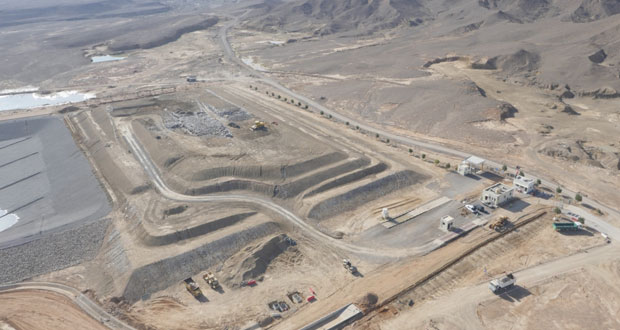
Muscat: The Oman Environmental Services Holding Company, (be’ah) has set an ambitious goal to reduce the amount of municipal waste and divert 60 percent of solid waste by 2025 and 80 percent by 2030 from engineering landfills in the Sultanate of Oman.
The company has worked on many plans and studies to implement the recycling process of waste of economic value such as construction and demolition waste, expired tyres, lead acid batteries and others, in line with sustainability goals.
Fahd bin Ali Al Kharusi, Head of the Planning Department in the Municipal Waste Sector at be’ah, said: “The company sought during the last few years, after completing the readiness of facilities in various governorates, to transfer the municipal solid waste management sector from various municipalities to specialised international companies, and the transfer was completed by the end of 2020 to include 100 percent of the population of the Sultanate of Oman. As a result, several transportation and waste collection management operations and management of various facilities were transferred to specialised international companies.”
Al Kharusi told the Oman News Agency that the company is currently managing many waste sites, including 10 engineering landfills and 16 transformational stations, and that the company applies sustainable solid waste management policies to prevent resource depletion, so as to create a sustainable economy or what is known as the ‘circular economy’.
He pointed out that there were other studies carried out by the company to recycle waste and benefit from it locally and achieve the principles of environmental sustainability and reduce pressure on the extraction of land resources.
He stressed that the company, as a first step, has worked to improve appropriate infrastructure for waste management through construction of engineering landfills and new waste transfer stations in accordance with internationally recognised standards. This is preparatory to closing all landfill sites spread across the Sultanate of Oman.
On the challenges facing Be’ah, Fahad Al Kharousi said: “There are several challenges, including raising awareness and responsibility among individuals, society and productive institutions and make them realise and apply the concepts of proper disposal of waste to ensure that wrong practices do not negate the civilised and aesthetic image of the Sultanate of Oman as these wrong practices represent a fertile environment for the proliferation of insects and rodents.”
He explained: “The increase in the practice of throwing municipal waste outside the designated containers, tampering with containers and destroying them by burning or other means, throwing the remains of slaughtered animals on public roads, valleys, etc. or littering them outside the municipal waste containers, constitutes a burden on the government necessitating help from specialised companies in solid waste management in various governorates of the Sultanate.”
Al Kharousi called on the agricultural sector to dispose of wastes in a sound manner and at the designated places to avoid distorting the public landscape and limit the proliferation of rodents that affect agricultural crops and cause other problems, including environmental and health issues.
He also called upon institutions operating in industrial zones to abide by the laws and legislation regulating the process of collection of industrial waste from various industrial zones with small and medium activities, and the contractors to throw construction and demolition waste at the designated places and not follow random dumping practices.